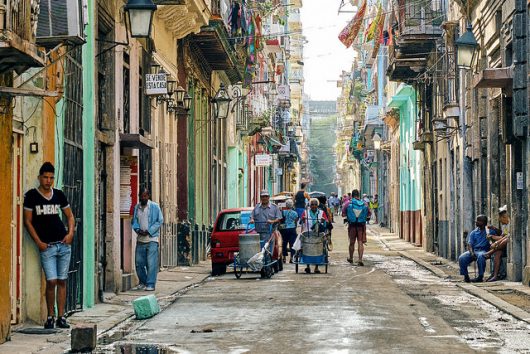Triumphant Moments Regarding Humanitarian Aid to Cuba

Spending an entire day flooding over northern regions of the island, the harshest storm since 1932 destroyed over 4,000 homes, obliterated acres of cane sugar, engulfed Havana and ravaged Cuba as well as several other Caribbean islands.
And the entire world took notice — Russian, Japanese, Bolivian and Colombian governments all sent vessels of humanitarian aid to Cuba; in fact, the United States seemed to be the only direct assistance absent. Over the years, humanitarian aid to Cuba has been mixed with a rather substantial amount of political hesitations.
For instance, the United States Agency for International Development offers humanitarian aid — such as food, vitamins, medicines and toiletries — to Cuba in regard to their families, but also to political prisoners and politically ostracized individuals.
President of Engage Cuba, James Williams, stated that “politics playing the dominant role in humanitarian relief unfortunately has been with us far too long.”
A possibility considered by members of Congress was to provide Cuba with tools and supplies to repair public infrastructure like schools, hospitals, roads, and bridges, aside from direct humanitarian aid.
“If the U.S. were to do something magnanimous like this, it would go a long way to further U.S. interests in Cuba and generally support a group of people who are in dire need of help,” said Williams.
However, this plan would also require efforts from Congress to briefly, and temporarily, remove parts of the economic ban on Cuba to allow delivery of construction material to state entities that own the roads and other infrastructure. But as of now, the ban permits such deliveries only to private parties.
While America found loopholes to support the island’s direst needs, the Russian Emergencies Ministry sent humanitarian aid to Cuba that consisted of over 1,000 tons of cargo, including construction materials and medicines.
Three aircrafts from Japan, Bolivia and Colombia delivered humanitarian aid to Cuba in the form of an eight-ton load of cargo composed of rice, water, milk, sheets and hygienic items. Along with these nations, the governments of Argentina, Canada, Costa Rica, China, Dominica, Ecuador, El Salvador, Spain, Mexico, Nicaragua, Uruguay, Venezuela and Vietnam also articulated their unity with Cuba and readiness to support their salvage.
– Jalil Perry
Photo: Flickr
